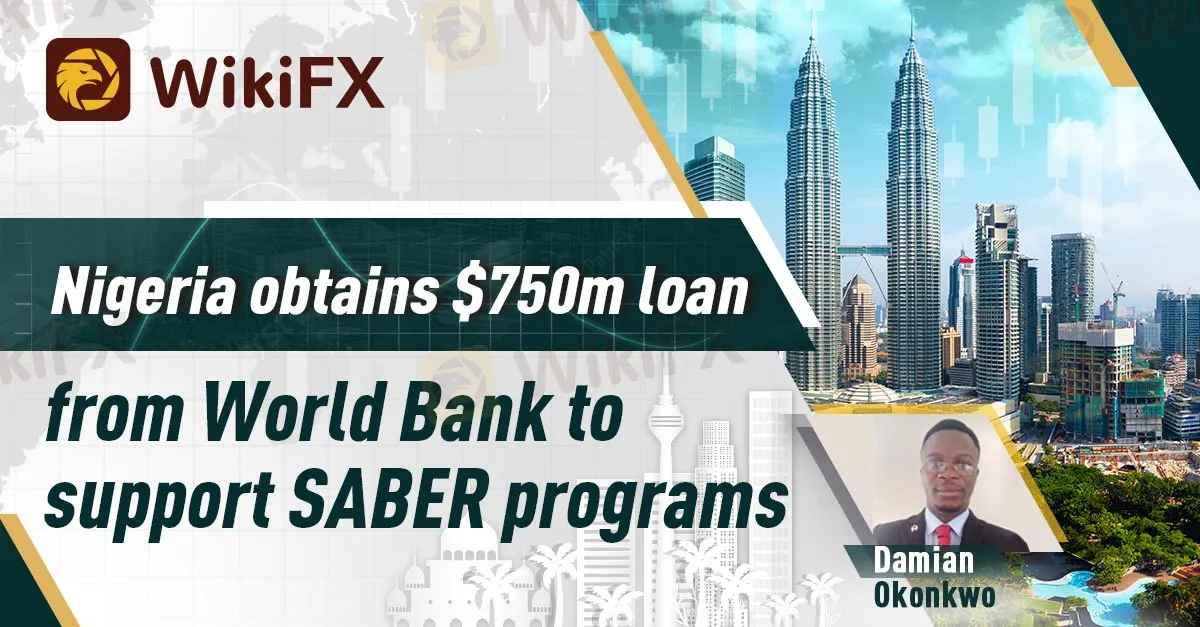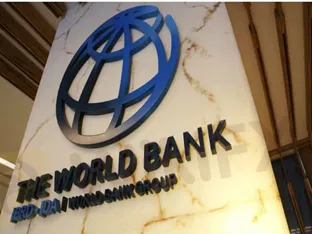简体中文
繁體中文
English
Pусский
日本語
ภาษาไทย
Tiếng Việt
Bahasa Indonesia
Español
हिन्दी
Filippiiniläinen
Français
Deutsch
Português
Türkçe
한국어
العربية
Nigeria obtains $750m loan from World Bank to support SABER programs
Abstract:Nigeria has obtained a loan of $750 million from the World Bank as an International Development Association (IDA) loan to support the growth of the Nigerian State Action on Business Enabling Reforms (SABER) program - for-result which is in agreement with Nigeria's National Development Plan (NDP).

By: Damian Okonkwo

In the bid to boost the Nigerian economy and foster more business growth and development - Nigeria has obtained a loan of $750 million from the World Bank as an International Development Association (IDA) loan. The said loan is intended to support the growth of the Nigerian State Action on Business Enabling Reforms (SABER) program - for result which is in agreement with Nigeria's National Development Plan (NDP).
This request has been granted by World Bank to Nigeria to support economic growth within the country. The details of this transaction are seen in the report titled “Improving the Business Enabling Environment in Nigeria to create Jobs and Boost Inclusive growth”.
Driven by the need to foster development across the states, the Nigerian government developed a new program—SABER— aimed at ensuring the implementation of critical actions that will enhance a business supportive environment across the Nigerian states. The government program (SABER) was therefore designed to build on the successes of PEBEC.
The main goal of SABER is to strengthen the existing PEBEC-National Economic Council (NEC) through subnational interventions and by adding incentives, such as results-based financing to the states, as well as ensuring the delivery of wholesale technical assistance to all states.
Thus, it is expected that all the states in Nigeria including the Federal Capital Territory (FCT) will be listed to partake in the SABER program and to bring reforms in all the business sectors of the state.
The SABER program is expected to assist various states in Nigeria in promoting both private sectors and other businesses within the state and create a conducive atmosphere for carrying out these businesses.

Disclaimer:
The views in this article only represent the author's personal views, and do not constitute investment advice on this platform. This platform does not guarantee the accuracy, completeness and timeliness of the information in the article, and will not be liable for any loss caused by the use of or reliance on the information in the article.
Read more

FCA Overhauls Rules on Non-Financial Misconduct in Financial Services
The FCA has launched a new consultation to strengthen rules against non-financial misconduct, aiming to align standards across the financial services industry and bolster public trust.

Pocket Option: The Broker With No License and Plenty of Risk
No regulation. No oversight. No safety net. Pocket Option is a trap too many traders walk into, only to lose their funds with no way back.

Pocket Option: The Broker With No License and Plenty of Risk
No regulation. No oversight. No safety net. Pocket Option is a trap too many traders walk into, only to lose their funds with no way back.

Forex VS Futures: Which One Should You Choose?
If you could only trade in one market for the next five years, would you choose forex or futures?
WikiFX Broker
Latest News
Elon Musk's xAI raises $10 billion in debt and equity as it steps up challenge to OpenAI
European Central Bank's tightening cycle is done,' chief economist says
ACY Securities Expands Crypto CFD Offering with 24/7 Trading Access
Revelation: Makeup Artist, Social Media Influencer Involved in INR 1.62 Cr Forex Trading Scam
Social Trading Goes Mobile at M4Markets
Capital.com Strengthens UK FinTech Ties with Key Memberships
Crypto Craze Fizzling Out? Here is Why
10-year Treasury yield ticks higher as investors eye jobs report
Public companies bought more bitcoin than ETFs did for the third quarter in a row
Tokenized Stocks: Innovation or Just Another Wrapper?
Currency Calculator


